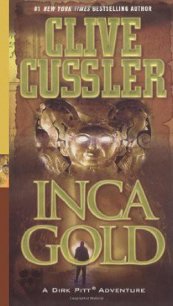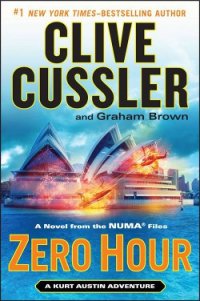Spartan Gold - Cussler Clive (читаем книги онлайн бесплатно без регистрации .txt) 📗
“As well as the seeds, right?” Remi said.
“Those, too. Actually the name ‘Lacanau’ was one of convenience. In fact, the Lacanau vineyard grapes came from seeds taken from the Corsican regions of the Ajaccio Patrimonio. Napoleon had Archambault cross-pollinate the seeds to create the Lacanau strain.
“Anyway, while he was still in power, Napoleon ordered the seeds for the Lacanau grape to be kept in secure repositories at Amiens, Paris, and Orleans. According to legend, while the fires were raging at Lacanau, the seeds mysteriously disappeared and were assumed destroyed. The Lacanau grape, which grew only in that coastal region of France, was gone forever.”
Remi said, “For argument’s sake let’s say all of this isn’t just a folk-tale. What we’re getting at is this: From exile, Napoleon, via secret messenger or carrier pigeon or whatever, ordered Henri Archambault, his chief winemaker, to produce a final batch of Lacanau wine and have it delivered to Saint Helena, then he orders his loyalist operatives back in France to raze the vineyard, ruin the soil, then kidnap and destroy the seeds. Then a few months later he orders this . . . Major to sail to Helena and spirit—no pun intended—the wine away to points unknown.” Remi looked at Sam and Selma in turn. “Have I got that right?”
“Sounds about right,” Sam said.
The three of them paused for ten seconds, staring at the bottle on the table with new eyes.
“How much is it worth?” Remi asked Selma.
“Well, the story has it there were twelve bottles in the case the Major and Arienne took from Saint Helena, and it seems likely that one of the bottles is already broken. If the case were intact . . . I’d say nine or ten million dollars—to the right kind of buyer, of course. But the case isn’t intact, so that really brings down the price. If I had to guess . . . I’d say each bottle would be worth between six and seven hundred thousand dollars.”
“For a bottle of wine,” Remi breathed.
“Not to mention the historical and scientific value,” Sam said. “We’re talking about a strain of grape that is in all likelihood extinct.”
“So what do you want to do?” Selma asked.
“We have to assume Scarface is after the wine rather than the UM-34,” Sam said.
“And he didn’t strike me as a connoisseur,” Remi added.
“Which means he’s working for someone. I’ll make some calls, pull in some favors, and see what we can find out. In the meantime, Selma, call Pete and Wendy and fill them in. Remi?”
“Agreed. Selma, you stay on the Lacanau angle. We need to know everything about it, about the bottle, about Henri Archambault—you know what to do.”
Selma was jotting notes. “I’m on it.”
Sam said, “When Pete and Wendy get here and they’re up to speed, turn them loose on Napoleon and his mysterious Major. Anything and everything.”
“Got it. There’s one thing that’s been nagging me, though. The crushed-beetle ink on this label came from the Tuscan Archipelago in the Ligurian Sea.”
Sam realized what she was getting at. “Which is where Elba is.”
“Which,” Remi said, chiming in, “is where Napoleon spent his first exile. Six years before Arienne claims he and the Major arrived at St. Helena to pick up the wine.”
“Either Napoleon had been planning this since Elba or he brought the ink with him to St. Helena,” Sam said. “We may never know. Selma, get started on your end.”
“Okay. And you two?”
“We’ve got some reading to do,” Remi replied. “This bottle was aboard the UM-34, left there by Manfred Boehm. We find out where the UM-34 and Boehm started, we find out where the bottle came from.”
They worked on Boehm’s diary and the UM-34’s log late into the night, Remi jotting notes she thought might help them better understand the man; Sam trying to retrace the UM-34’s course backward from its final resting place.
“Here,” Remi said, straightening in her chair and tapping the diary. “This is what we’ve been looking for: Wolfgang Muller. Listen to this entry: ‘August 3, 1944: For the first time as brothers in arms Wolfi and I ship out together tomorrow. I pray God we succeed and prove worthy of our commands.’ ”
“Brothers in arms,” Sam repeated, “and the man with the other bottle. So Muller was also in the Kriegsmarine—Boehm the captain of the UM-34, Muller the captain of . . . what? Gertrude, perhaps? Boehm’s mother ship?”
“Perhaps.” Remi picked up her cell phone and called down to the workshop. “Selma, can you work your magic on something for us? We need anything you can dig up on a World War II Kriegsmarine sailor named Wolfgang Muller. In summer or fall of 1944 he might have commanded a ship of some kind. Right, thanks.”
True to her reputation, Selma called back thirty minutes later. Remi put her on speakerphone.
“Found him,” she said. “You want the short or long version?”
“Short for now,” Sam replied.
“Fregattenkapitan Wolfgang Muller, born 1910 in Munich. Joined the Kriegsmarine in 1934. Standard promotions, no disciplinary action. In 1944 he was assigned to captain the auxiliary ship Lothringen. Home port was listed as Bremerhaven, her duty area the Atlantic. According to Germany’s naval archive database, Lothringen was orginally laid down as a French ferry named Londres. The Germans captured it in 1940 and converted it into a mine layer. It was reassigned for ‘special duty’ in July of 1944, but there was no mention of the particulars.”
“A mine layer?” Remi said. “Why would they—”
“By that time in the war the Germans were losing and they knew it—everyone but Hitler, that was,” Selma said. “They were desperate. The kinds of auxiliary ships they would have normally used to transport the UM-34 had either been sunk or converted into troop escorts.
“I also found a website entitled Survivors of the Lothringen, along with a fair number of blogs dedicated to the subject. It seems the Lothringen was attacked and disabled during a storm by a U.S. Navy destroyer in September of 1944 off Virginia Beach.”
“About fifty miles south of Pocomoke Sound,” Remi said.
“Right. Only about half the Lothringen’s crew survived the attack. Those who did spent the remainder of the war in a Wisconsin POW camp called Camp Lodi. The Lothringen was towed to Norfolk and sold to Greece after the war. As far as I can tell, there’s no record of it ever being scrapped.”
“What about Muller? Any idea what happened to him?”
“Nothing yet. Still looking. One of the Lothringen blogs, run by the granddaughter of a survivor named Froch, is sort of a diary in itself. The entries talk a lot about the weeks leading up to the attack. If we’re to believe the account, the Lothringen spent about a month undergoing a refit at a secret German base in the Bahamas and frolicking with the native girls. Someplace called Rum Cay.”
“Selma, did the Lothringen have facilities to do refitting?”
“Not even close. The best it could have done was simply strap the UM-34 to the deck, cover it in a tarp to keep it hidden from prying eyes, then transport it across the Atlantic.”
“That would explain why they didn’t do whatever refitting was required at sea,” Remi said.
“True, but why didn’t they do the refit in Bremerhaven before they left? Maybe they were in a hurry. As I said, they were getting desperate by that point.”
“Wait a second,” Sam blurted out, then grabbed the 34’s logbook and began paging through it. “Here, right here! At the beginning of his log Boehm mentions a place, but only by initials: R.C.”
“Rum Cay,” Remi murmured.
“Has to be.”
“It fits,” Selma agreed.
Sam looked questioningly at Remi, who smiled and nodded back. “Okay, Selma, time to put on your travel-agent hat. Get us on the next flight to Nassau.”




